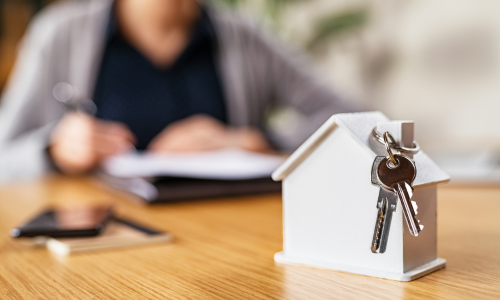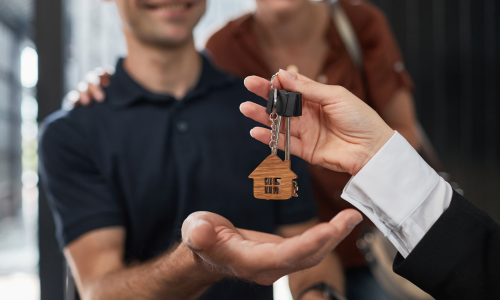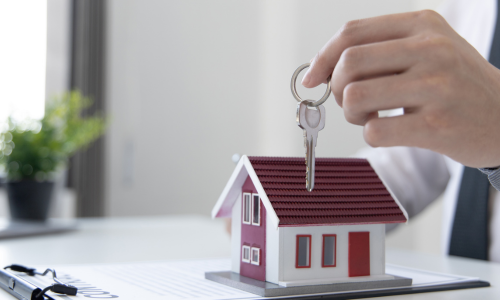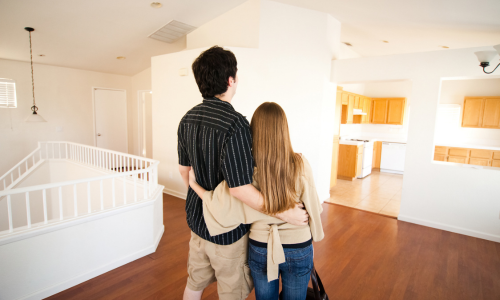Top 20 Most Googled Questions About Buying a Home in Southern Ontario (2025 Edition)
Embarking on the journey to homeownership in Southern Ontario? You're not alone. Many prospective buyers have similar questions about the process. Here are the top 20 most Googled questions about buying a home in Southern Ontario, along with concise answers to guide you.

1. What is the current housing market like in Southern Ontario?
As of early 2025, the Southern Ontario housing market remains dynamic. For instance, the Greater Toronto Area (GTA) saw an average home price of $1,040,994 in January 2025, a 1.4% year-over-year increase. However, markets like Hamilton experienced a 4.8% decrease, with average prices around $757,071.
2. Is it a buyer's or seller's market right now?
Market conditions vary by region. In some areas, high demand and low inventory favor sellers, while in others, increased listings give buyers more leverage. Consulting with a local real estate professional can provide clarity on current conditions in your desired area.
3. What assistance is available for first-time home buyers in Ontario?
Ontario offers several programs, including:
First-Time Home Buyer Incentive (FTHBI): Provides a shared equity loan to reduce monthly mortgage payments.
Land Transfer Tax Refund: Eligible first-time buyers can receive a refund of up to $4,000 on provincial land transfer tax.
Home Buyers' Plan (HBP): Allows withdrawal of up to $35,000 from RRSPs to buy or build a qualifying home.

4. Should I rent or buy my first house?
The decision depends on factors like financial readiness, market conditions, and personal goals. Homeownership can build equity over time, but renting offers flexibility. Assess your long-term plans and consult with a financial advisor to determine the best path.
5. How much should I save for a down payment?
In Canada, the minimum down payment is:
5% for homes priced up to $500,000.
10% for the portion of the price between $500,000 and $1 million.
20% for homes priced over $1 million.
Saving more can reduce mortgage insurance costs and monthly payments.

6. How do I get pre-approved for a mortgage?
To get pre-approved:
Review your credit report.
Gather financial documents (e.g., income statements, debts).
Consult with lenders to determine the amount you can borrow.
Pre-approval provides a clear budget and shows sellers you're a serious buyer.
7. What factors influence home prices in 2025?
Home prices are affected by:
Economic conditions.
Interest rates.
Housing supply and demand.
Local developments and amenities.
Staying informed about these factors can help in making strategic buying decisions.
8. What is the First Home Savings Account (FHSA)?
Introduced in 2023, the FHSA allows first-time buyers to save up to $8,000 annually, with a lifetime limit of $40,000. Contributions are tax-deductible, and withdrawals for a home purchase are tax-free.

9. How does the Home Buyers' Plan (HBP) work?
The HBP lets first-time buyers withdraw up to $35,000 from their RRSPs to buy or build a home. The withdrawn amount must be repaid within 15 years to avoid tax penalties.
10. What is mortgage insurance, and do I need it?
If your down payment is less than 20%, you're required to have mortgage default insurance. This protects the lender in case of default and adds to your monthly costs. A higher down payment can help you avoid this expense.
11. How do I choose the right mortgage lender?
Compare lenders based on:
Interest rates.
Loan terms.
Fees and penalties.
Customer service reputation.
Consulting with a mortgage broker can also provide access to multiple lending options.

12. What are closing costs, and how much should I budget for them?
Closing costs include legal fees, land transfer taxes, and other expenses, typically ranging from 1.5% to 4% of the home's purchase price. Budgeting for these ensures a smoother closing process.
13. What is a conditional sale?
A conditional sale means the offer to purchase includes certain conditions that must be met before the deal is finalized. Common conditions include:
Financing approval
Home inspection
Sale of the buyer's current home
If the conditions aren’t met within the agreed timeline, the buyer can walk away from the deal without penalties.
14. Should I get a home inspection before buying?
Yes, especially in Southern Ontario where older homes or rural properties can have hidden issues. A home inspection can reveal problems with the foundation, roof, plumbing, electrical, or HVAC. Even in hot markets where buyers feel pressured to skip inspections, it's a smart step to protect your investment.

15. What is the land transfer tax in Ontario?
Ontario charges a Land Transfer Tax (LTT) when you purchase property. In some cases, especially in cities like Toronto, buyers may also face a municipal land transfer tax.
First-time home buyers may qualify for a rebate of up to $4,000 on the provincial LTT.
Use an online calculator or ask your real estate agent for an estimate before closing day.
16. How do I know how much I can afford?
Lenders use your debt-to-income ratio and credit history to determine what you can afford. A common guideline is that your monthly housing costs (mortgage, taxes, insurance) should not exceed 32% of your gross monthly income.
A mortgage pre-approval will give you a realistic price range before you shop.
17. What are the steps to buying a home in Ontario?
Here’s a simplified roadmap:
Check your credit and finances
Get mortgage pre-approval
Find a trusted real estate agent
Start house hunting
Make an offer
Complete conditions (if any)
Finalize mortgage approval
Close the sale with your lawyer
Move in! ??
18. How long does it take to buy a home?
From starting your search to getting the keys, it typically takes 6 to 12 weeks, depending on how quickly you find a property and the length of your closing date. Some rural or custom properties may take longer due to inspections, financing, or legal issues.

19. What should I look for in a real estate agent?
In Southern Ontario, a great agent will:
Know the local market (Brantford, Hamilton, Kitchener, etc.)
Be experienced with first-time buyers
Help you understand contracts and timelines
Recommend trusted professionals (lawyers, inspectors, lenders)
Be responsive, honest, and communicative
Referrals and online reviews can help you find a great fit.
20. What happens on closing day?
On closing day, your lawyer handles the legal and financial transaction. This includes:
Transferring funds to the seller
Registering the property in your name
Providing you with the keys
Make sure you’ve arranged home insurance, utilities, and a final walkthrough before closing.
Buying a home is a huge milestone—and while it comes with questions, it doesn’t have to be overwhelming. With the right guidance and support, we can help you move forward confidently and find a place that truly feels like home.
Contact us Here: Buyers Start Here!
This blog is for general informational purposes only and is based on typical practices in Southern Ontario as of 2025. Always consult with a licensed real estate agent, mortgage broker, or legal professional before making any financial decisions.
Cite
KW Most Googled Questions 2025
Southern Ontario March Update
Consider Buying A Home
First Time Home Buyers
Clover Mortgage